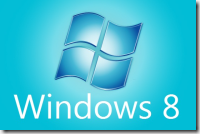The Next Series: Part 3 – Apps Marketplace
 The Apps Store is all the rage nowadays and everyone says how “Apple Invented this Revolutionary Concept”. As I recall – Windows had a Marketplace for Apps and Accessories going way back…
The Apps Store is all the rage nowadays and everyone says how “Apple Invented this Revolutionary Concept”. As I recall – Windows had a Marketplace for Apps and Accessories going way back…
Still, the true revolution in Apple’s iOS is the seamless end-to-end experience of discovering and purchasing / installing Apps. And, in my opinion, the “installing” part is even more critical here!
 It is pretty obvious that with Windows 8 Microsoft will take App Store to the next level to try and “stay with the times”. But will they be able to take the bold re-engineering steps necessary to make install / uninstall finally a Seamless experience?
It is pretty obvious that with Windows 8 Microsoft will take App Store to the next level to try and “stay with the times”. But will they be able to take the bold re-engineering steps necessary to make install / uninstall finally a Seamless experience?
Why is this critical? Because of “experimentation” empowerment – with iPhone users feel Free to install Applications (either Purchase or Demo) just to Check them Out. This, combined with social “What’s Hot Now” aspect, leads to huge Boom in the Marketplace – ultimately bringing huge payoffs to Platform ecosphere.
iOS appears to have this art down. In my experience iPhone can easily have hundreds of Apps installed, yet it starts up just as quickly, uninstalls just as cleanly once you’re “done with it” and really releases the space back to the user.
For Windows to get to the same place is a huge challenge, but if they do – perception is an even harder thing to fix. Today’s Windows Apps require weird “install” wizards, force themselves into PC Startup, add slow “Services” and buggy “Drivers”, seed computer with Temporary files and often create countless duplicates “per user account” to operate. Even worse, we accepted as “norm” the fact that our Shiny New PC’s come with Crapware from the Computer maker, and the fact that anything we install is likely to slow our computer down and we will never be able to fully uninstall it.
Meanwhile Google’s Android Marketplace is showing us that it is possible to keep an Open marketplace and still maintain decent platform quality. Microsoft does have some right ideas there, but I wonder how much will come to fruition and most importantly, how soon will it materialize for Windows to stay relevant.
Biggest thing that Windows has going for it is a large user base which is familiar with it. Few Great Games and MS-Office are also helping to keep Windows alive, but for how much longer?